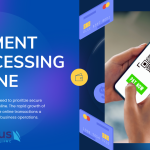10 Essential Tips to Secure Your Merchants Credit Card Processing
highly digital and interconnected world, safeguarding sensitive information during transactions has never been more critical. For businesses that process credit card payments, ensuring that their systems are secure is not just a necessity, it’s a vital responsibility. Hackers and fraudsters are constantly devising new methods to exploit weaknesses, making it crucial for merchants to take proactive steps in securing their merchants credit card processing systems. Failing to do so could lead to significant financial losses, legal penalties, and damage to the reputation of your business.
In this comprehensive guide, we’ll walk you through 10 essential tips to help you protect your credit card processing system. These practices not only safeguard your business and customers but also help you maintain compliance with regulatory standards. By implementing these strategies, you can minimize risks, build customer trust, and keep your operations running smoothly.
Table of Contents
- Implement PCI Compliance
- Use End-to-End Encryption (E2EE)
- Adopt Tokenization
- Enable Two-Factor Authentication
- Monitor Transactions Regularly
- Choose a Secure Payment Gateway
- Train Employees on Security Best Practices
- Limit Access to Payment Systems
- Regularly Update Software and Systems
- Conduct Regular Security Audits
1. Implement PCI Compliance
One of the first and most critical steps for ensuring secure merchants credit card processing is adhering to the Payment Card Industry Data Security Standard (PCI DSS). PCI DSS is a set of comprehensive requirements aimed at enhancing the security of payment card data. Every business that processes, stores, or transmits credit card information must comply with these standards.
Being PCI compliant involves several layers of security, from installing and maintaining a firewall to regularly testing security systems. The objective is to prevent data breaches that could lead to the theft of customer card information.
Key Steps to Achieve PCI Compliance:
- Build and maintain a secure network by using firewalls and proper configurations.
- Protect stored cardholder data through encryption and secure storage solutions.
- Implement strong access control measures to ensure only authorized personnel have access to sensitive information.
- Regularly test and monitor networks to detect vulnerabilities and prevent breaches.
- Develop and maintain a policy that addresses information security for all personnel.
PCI compliance is not just a one-time task but an ongoing process. Failure to comply with PCI standards can lead to costly fines and damage to your brand’s reputation.
2. Use End-to-End Encryption (E2EE)
In today’s cyber threat landscape, encryption is one of the most effective ways to protect sensitive data. End-to-End Encryption (E2EE) ensures that data is encrypted from the moment it is entered into the system until it is safely processed by the payment provider. This type of encryption protects cardholder information as it moves across various systems and networks, making it virtually impossible for hackers to intercept usable data.
For businesses, adopting E2EE means that even if a transaction is intercepted, the data cannot be read without the decryption key. Integrating E2EE into your merchants credit card processing setup can dramatically reduce the chances of fraud and data theft.
Advantages of End-to-End Encryption:
- Prevents unauthorized parties from accessing or viewing sensitive data during transmission.
- Reduces the likelihood of costly data breaches.
- Helps merchants comply with PCI DSS requirements regarding encryption of cardholder data.
Ensure that your payment systems are compatible with E2EE to offer customers peace of mind and protect your business from potential threats.
3. Adopt Tokenization
Another powerful security measure that can be employed in your merchants credit card processing system is tokenization. Tokenization works by replacing sensitive card information, such as the card number, with a unique identifier called a “token.” This token is meaningless if intercepted by a hacker and cannot be reversed to reveal the original card number.
Tokenization is highly effective because it reduces the risk of sensitive information being exposed in case of a breach. Even if a hacker gains access to your system, the tokenized data cannot be used for fraudulent transactions.
Benefits of Tokenization:
- Eliminates the need to store sensitive card information on your servers, reducing the risk of a data breach.
- Ensures that even if tokens are intercepted, they are useless to criminals.
- Helps meet PCI DSS requirements for data protection and storage.
Tokenization and encryption work hand in hand to offer an additional layer of security for your payment processing.
4. Enable Two-Factor Authentication (2FA)
Two-Factor Authentication (2FA) adds an extra level of security to your merchants credit card processing by requiring users to provide two forms of identification before they can access sensitive systems. Even if a password is compromised, a second form of verification—such as a text message, phone call, or biometric scan—prevents unauthorized access.
2FA is one of the simplest yet most effective ways to prevent cyber-attacks and data breaches. It’s an added layer of defense against phishing attacks, password breaches, and other forms of unauthorized access.
Popular 2FA Methods:
- One-time passcodes sent via SMS or email.
- Mobile apps that generate time-sensitive codes (e.g., Google Authenticator).
- Biometric verifications like fingerprint or facial recognition.
- Security tokens or physical devices that generate one-time-use passcodes.
2FA should be enabled not only for your payment processing systems but also for other critical systems and software to reduce the risk of unauthorized access.
5. Monitor Transactions Regularly
Regular monitoring of transactions is essential to detect suspicious activities and prevent fraud. By implementing a robust transaction monitoring system, businesses can spot anomalies that may indicate fraudulent behavior. This includes analyzing patterns in purchasing behavior, transaction amounts, and even geographic locations.
Monitoring also helps you comply with merchants credit card processing security standards by ensuring that any potential issues are identified and addressed promptly.
Effective Monitoring Techniques:
- Set thresholds for transaction amounts and flag high-value purchases for manual review.
- Use machine learning algorithms to identify patterns of behavior that may indicate fraud.
- Review IP addresses and device information to detect unusual access points.
- Set up real-time alerts for suspicious activities or attempted breaches.
Monitoring your system regularly can help you respond quickly to any potential threats, minimizing the impact of fraud on your business.
6. Choose a Secure Payment Gateway
Your choice of payment gateway is critical when it comes to merchants credit card processing. A secure payment gateway ensures that card data is encrypted, processed, and stored safely. Look for gateways that offer advanced security features such as encryption, tokenization, and real-time fraud detection.
Payment gateways act as the bridge between your business and your payment processor, making it essential that they are equipped with the latest security measures to protect cardholder data.
Features of a Secure Payment Gateway:
- SSL encryption to ensure that data is protected during transmission.
- Fraud detection and prevention tools to minimize the risk of unauthorized transactions.
- PCI DSS compliance to meet industry security standards.
- Seamless integration with your existing payment systems to ensure compatibility and security.
Choosing a secure gateway not only protects your business from breaches but also provides your customers with confidence that their data is safe.
7. Train Employees on Security Best Practices
No matter how secure your systems are, human error can still be a significant risk factor. Employees need to be educated on security best practices to ensure that they don’t inadvertently compromise your merchants credit card processing systems. Regular training sessions can help employees recognize potential security threats and avoid mistakes that could lead to data breaches.
Key Training Areas:
- Identifying phishing emails and social engineering attacks.
- Proper handling and disposal of sensitive customer information.
- Secure password creation and management.
- Reporting suspicious activity immediately to minimize risks.
Regular employee training and awareness programs can prevent costly mistakes and strengthen your overall security posture.
8. Limit Access to Payment Systems
Not everyone in your organization needs access to payment systems. By limiting access to only those employees who absolutely need it, you can reduce the risk of internal fraud or accidental exposure of sensitive information. Implement role-based access controls that grant different levels of access depending on the employee’s job responsibilities.
Best Practices for Limiting Access:
- Assign roles and permissions based on job functions.
- Regularly audit access controls and update them when employees change roles or leave the company.
- Use 2FA for employees accessing critical systems.
- Implement logging and monitoring to track who accesses payment systems and when.
By limiting access, you make it harder for unauthorized individuals to compromise your systems.
9. Regularly Update Software and Systems
Regularly updating your software and systems ensures that you’re protected from the latest threats. Hackers are constantly finding new vulnerabilities in payment processing systems, and software updates often contain security patches that close these loopholes.
Keeping your systems up-to-date is a simple yet effective way to protect your merchants credit card processing operations from potential attacks.
Strategies for Staying Up-to-Date:
- Enable automatic updates for your software whenever possible.
- Regularly review and update firewalls, anti-virus, and anti-malware software.
- Work with your IT team to schedule regular reviews of your payment systems.
By keeping your software updated, you can protect your business from vulnerabilities that hackers could exploit.
10. Conduct Regular Security Audits
Security audits help you identify weaknesses in your merchants credit card processing system before they become a problem. Regular audits, whether conducted internally or by a third-party auditor, can uncover issues that may otherwise go unnoticed.
Security audits are not only important for preventing breaches but also for ensuring compliance with PCI DSS and other regulatory standards.
Key Areas to Audit:
- Access control policies and role-based permissions.
- Effectiveness of encryption and tokenization methods.
- Transaction logs to identify irregularities.
- Security protocols for handling cardholder data.
By conducting regular security audits, you can ensure that your payment systems remain secure and compliant with industry standards.
Key Security Measures for Merchants Credit Card Processing
| Security Measure | Description |
|---|---|
| PCI Compliance | Adhere to industry standards for secure processing |
| End-to-End Encryption (E2EE) | Encrypt data from entry to processing |
| Tokenization | Replace card data with non-sensitive tokens |
| Two-Factor Authentication | Add extra layer of security to system access |
| Secure Payment Gateway | Choose a gateway with robust security features |
FAQs
1. What is PCI Compliance?
PCI Compliance refers to adhering to the Payment Card Industry Data Security Standards, which are guidelines designed to ensure that all companies handling credit card information maintain a secure environment.
2. Why is encryption important for merchants?
Encryption ensures that sensitive card information remains protected during transmission, minimizing the risk of data being intercepted by hackers.
3. What is tokenization in credit card processing?
Tokenization replaces sensitive card data with a unique token, which cannot be used by hackers even if they gain access to it.
4. How can regular software updates enhance security?
Regular updates address vulnerabilities that hackers could exploit. Keeping systems up-to-date ensures that you are protected against the latest threats.
Contact Us
At Motus Financial, we understand the importance of keeping your merchants credit card processing secure and compliant with industry standards. Our team of experts is dedicated to providing you with the best security solutions to protect your business from fraud and breaches. From PCI compliance to advanced encryption methods, we have the tools and expertise to safeguard your payment systems.
If you’re looking for professional advice or need assistance in enhancing your payment security, contact us at (608) 819-8666. You can also find us on Google My Business for reviews, contact details, and more information about our services. Let us help you secure your business and build trust with your customers today!
By following these essential tips and working with a trusted partner like Motus Financial, you can ensure that your merchants credit card processing is secure, efficient, and fully compliant with all regulatory requirements. Protecting your business and your customers is not just a priority—it’s a necessity.

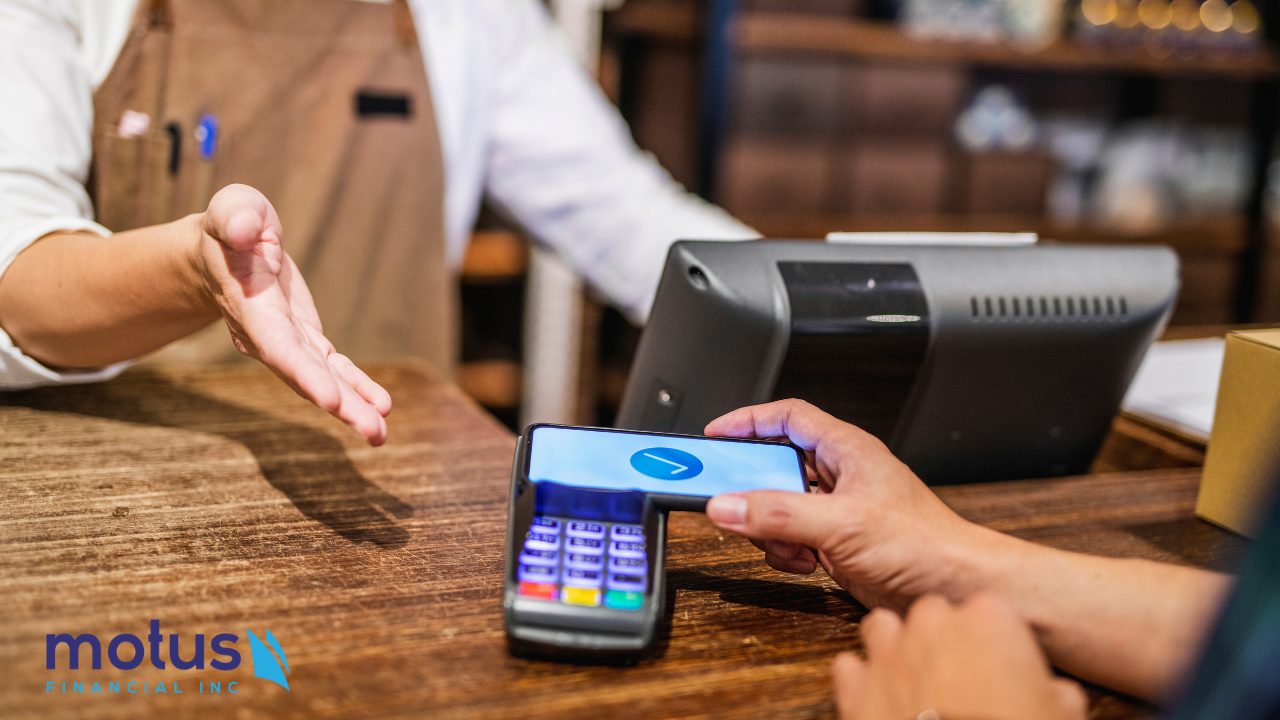



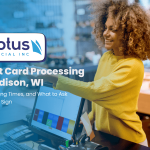

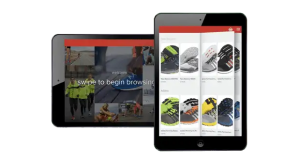
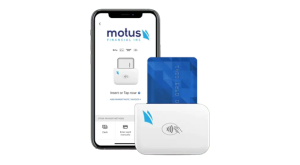
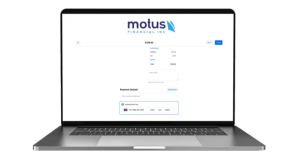
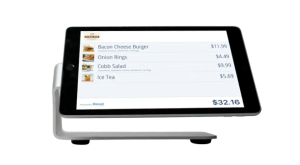 Our POS systems are designed to streamline in-store transactions. With features like inventory management, sales reporting, and customer tracking, our POS solutions help you run your business more efficiently. Our terminals are compatible with various payment methods, including chip cards, contactless payments, and mobile wallets.
Our POS systems are designed to streamline in-store transactions. With features like inventory management, sales reporting, and customer tracking, our POS solutions help you run your business more efficiently. Our terminals are compatible with various payment methods, including chip cards, contactless payments, and mobile wallets.